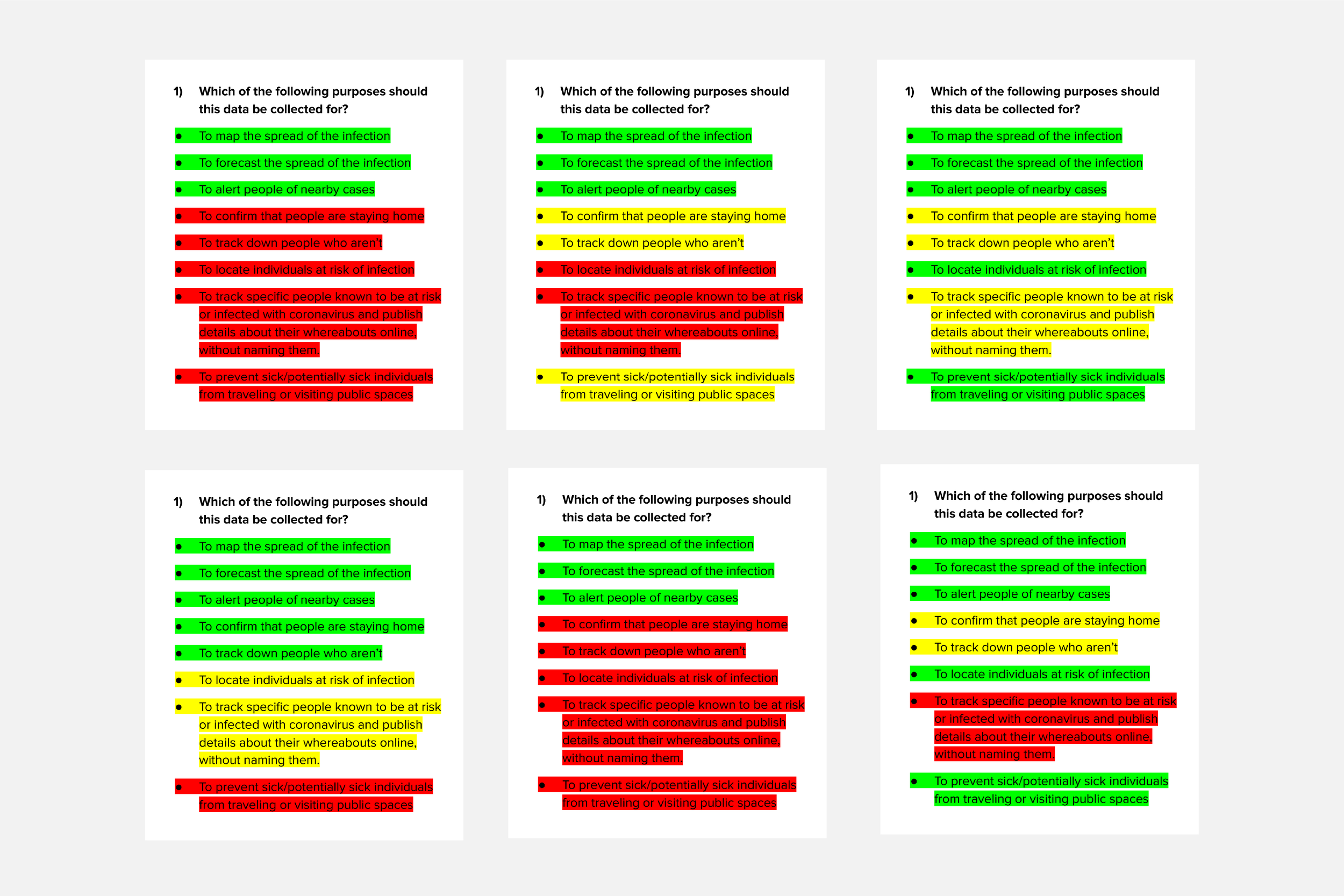Developed as part of the Mozilla Responsible CS Challenge, this exercise aims to dispel the myth of the universal user and increase students’ awareness of accessibility challenges (and opportunities!) in human-computer interactions.
Read More32 authors and contributors participating in Mozilla’s Responsible Computer Science Challenge share learnings, best practices, and resources for integrating ethics into computing education.
Read MoreWith renewed support from Mozilla in the second stage of the grant, the Georgetown team is partnering with faculty at other universities to further develop Ethics Lab’s approach to integrating ethics in Computer Science education.
Read MoreIf you were required to download a contact-tracing app in order to return to school or work, would you? What questions would you have?
Read MoreAs one student reflected, “I’ve used Wikipedia for at least 10 years, and today was the first time I considered how a user with visual impairment would navigate the website.”
Read MoreIn the second ResponsibleCS session of the semester, students considered the ethical factors arising from their design choices as they learned about sequence diagrams.
Read MoreFor the first ResponsibleCS session of the semester, Ethics Lab worked with Professor Ray Essick to design an exercise examining how ethical dilemmas might materialize at any stage of software development.
Read MoreWith two semesters of Mozilla-sponsored ResponsibleCS ethics engagements under their belts and the first stage of the grant substantially complete, Ethics Lab and the Computer Science Department are continuing to refine and test their approach to infusing ethics into Georgetown’s computer science curriculum.
Read MoreDuring the final sessions in Professor Essick’s Advanced Programing course, the Responsible CS Team challenged students to reflect on the ethical considerations at stake in the design and implementation of a contract tracing application that might be part of a broader public health response to the COVID-19 pandemic.
Read MoreStudents consider ethical concerns of how human-computer interfaces.
Read MoreIn this session students explored how values may be implicated in computer science due to the agency and responsibility of designers, expectations about how software and algorithms will be used, and what affects software and algorithms are likely to have on people.
Read MoreOn January 28, Professor Cal Newport's Introduction to Algorithms class was learning about average case complexity and randomized analysis.
Read MoreIn our first session with Professor Cal Newport’s course, Introduction to Algorithms, Georgetown’s Responsible CS Team explored the question: what makes a good algorithm?
Read MoreGeorgetown University’s Initiative on Tech & Society. Funded by a Mozilla Responsible Computer Science Challenge grant.
Read MoreGeorgetown University’s Initiative on Tech & Society. Funded by a Mozilla Responsible Computer Science Challenge grant.
Read MoreIn October, Ethics Lab members Maggie Little, Elizabeth Edenberg, Jonathan Healey and Sydney Luken attended the Mozilla Festival 2019 in London.
Read MoreGeorgetown University’s Initiative on Tech & Society. Funded by a Mozilla Responsible Computer Science Challenge grant.
Read MoreGeorgetown University’s Initiative on Tech & Society. Funded by a Mozilla Responsible Computer Science Challenge grant.
Read MoreGeorgetown University’s Initiative on Tech & Society. Funded by a Mozilla Responsible Computer Science Challenge grant.
Read MoreGeorgetown University’s Initiative on Tech & Society. Funded by a Mozilla Responsible Computer Science Challenge grant.
Read More



















